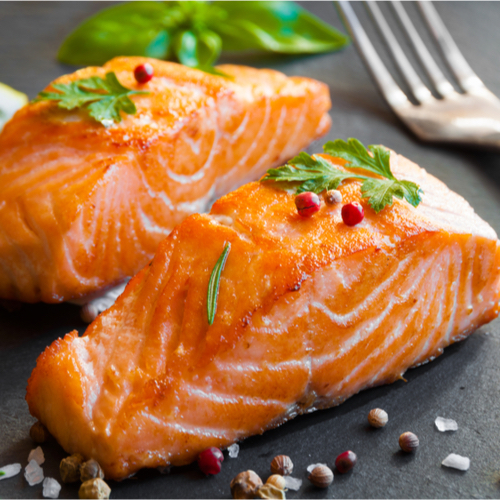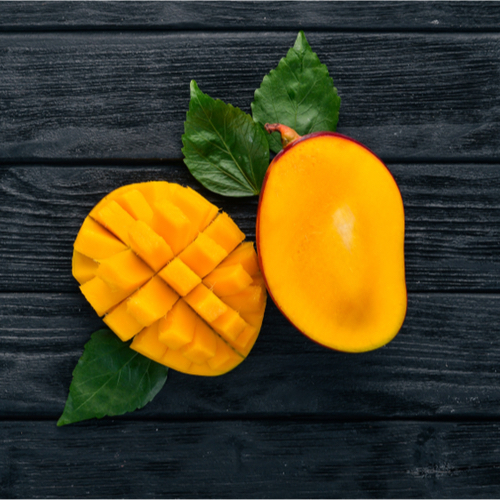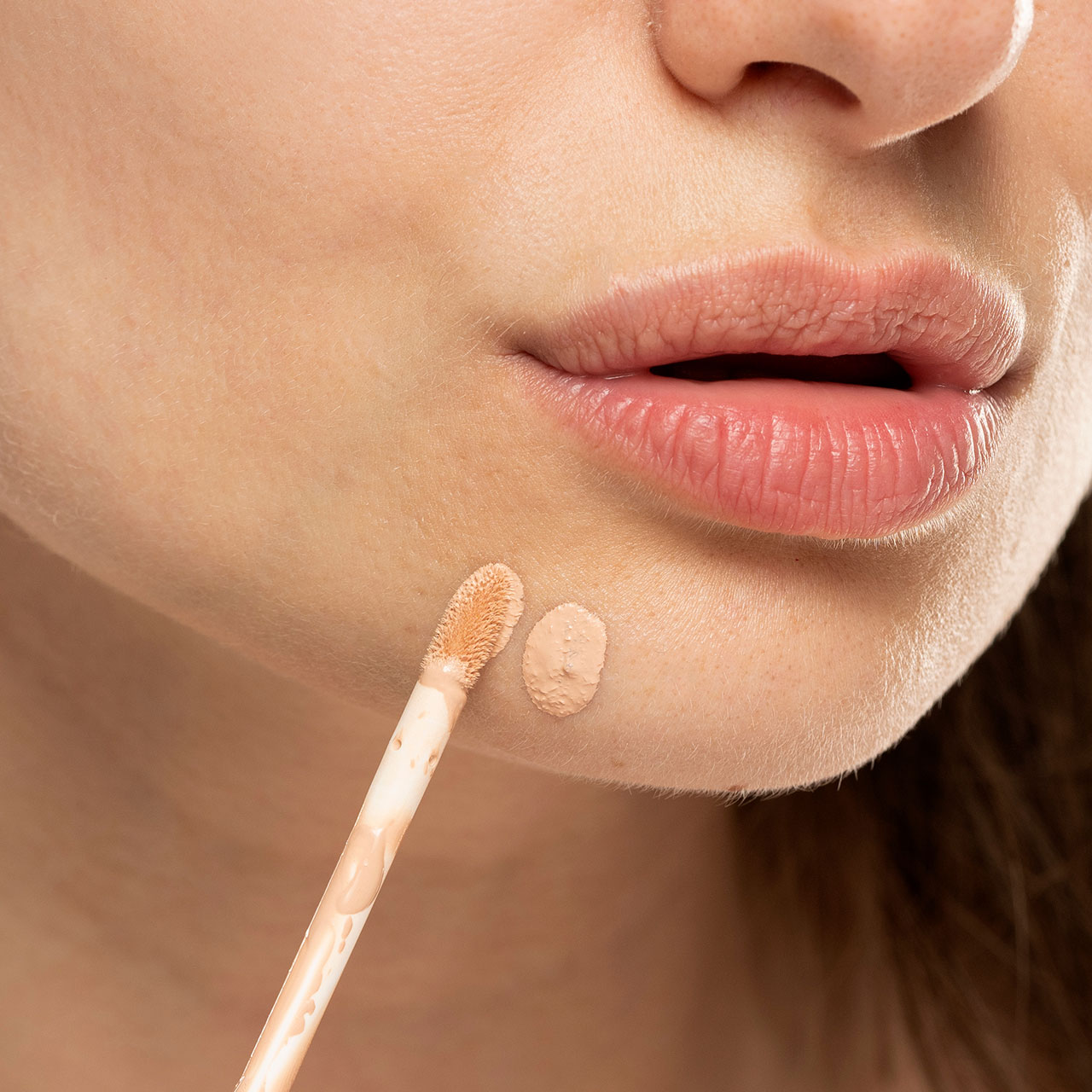This is an archived article and the information in the story may be outdated. Please check the time stamp on the story to see when it was updated last.
Collagen may seem like a buzz word in health, thanks to the number of new powders on the market that claim to do everything from help repair muscles to make your skin glow. But it’s nothing new — this protein that your body naturally makes is found in your bones, muscles, skin, and ligaments, providing them structure and making skin elastin (among other roles). As we age, our bodies lose collagen, which explains sagging skin. But one of the best ways to keep your skin healthy is by eating a balanced diet that contains foods rich in collagen. Not sure where to start? Dr. Ailynne Marie Vergara-Wijangco MD, a clinical dermatologist and researcher at Thank Your Skin, shared with SHEFinds.com the six high-collagen foods you can eat every day to help prevent sagging skin. Good news: they’re all delicious.


Fish and Shellfish
“Like other animals, fish and shellfish have bones and ligaments made of collagen,” Dr. Vergara-Wijangco says. “Some people have claimed marine collagen is one of the most easily absorbed. But while your lunchtime tuna sandwich or dinnertime salmon can certainly add to your collagen intake, be aware that the ‘meat’ of fish contains less collagen than other, less desirable parts. We don’t tend to consume the parts of fish that are highest in collagen, like the head, scales, or eyeballs.”
Garlic
A teaspoon of garlic on your pasta or in your sautéed veggies does more than just add intense flavor — it provides a collagen boost.
“Garlic is high in sulfur, which is a trace mineral that helps synthesize and prevent the breakdown of collagen,” Dr. Vergara-Wijangco says. “It’s important to note, however, that how much you consume matters. You probably need a lot of it to reap the collagen benefits. But with its many benefits, it’s worth considering garlic part of your regular diet.”

Eggs
Rise and shine — and don’t skip breakfast, especially if you plan on poaching or scrambling eggs.
“Although eggs don’t contain connective tissues like many other animal products, egg whites do have large amounts of prolineTrusted Source, one of the amino acids necessary for collagen production,” Dr. Vergara-Wijangco says.

Citrus
Because Vitamin C plays a major role in the production of pro-collagenTrusted Source, the body’s precursor to collagen, Dr. Vergara-Wijangco reminds us that getting enough vitamin C is critical.
Leafy Greens
While you’re filling up on fruit, don’t forget its nutritious cousin: leafy greens.
“Spinach, kale, Swiss chard, and other salad greens get their color from chlorophyll, known for its antioxidant properties,” Dr. Vergara-Wijangco says. “Some studies have shown that consuming chlorophyll increases the precursor to collagen in the skin.”
“As you probably know, citrus fruits like oranges, grapefruit, lemons, and limes are full of this nutrient,” Dr. Vergara-Wijangco says. “Try a broiled grapefruit for breakfast, or add orange segments to a salad. Though citrus tends to get all the glory for its vitamin C content, berries are another excellent source. Ounce for ounce, strawberries actually provide more vitamin C than oranges. Raspberries, blueberries, and blackberries offer a hefty dose, too.”

Protein-Rich Foods
Knowing which foods to stay away from is just as important as knowing which to stock up on, if collagen production is a concern. “Sugar and refined carbs can damage collagen,” Dr. Vergara-Wijangco says. “To help your body do its best production of collagen, you can’t go wrong with high-collagen animal or plant foods or vitamin and mineral-rich fruits and vegetables. And if you don’t like the foods listed, remember there’s no one source. A diet full of protein-rich foods, whether from plant or animal sources, can help supply these critical amino acids. Other nutrients that aid the process of collagen production include zinc, vitamin C, and copper. So, fruits and vegetables high in vitamins and minerals are also a friend to supple skin.”


























